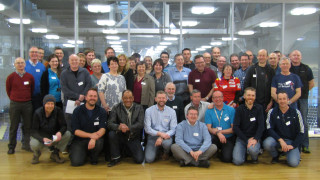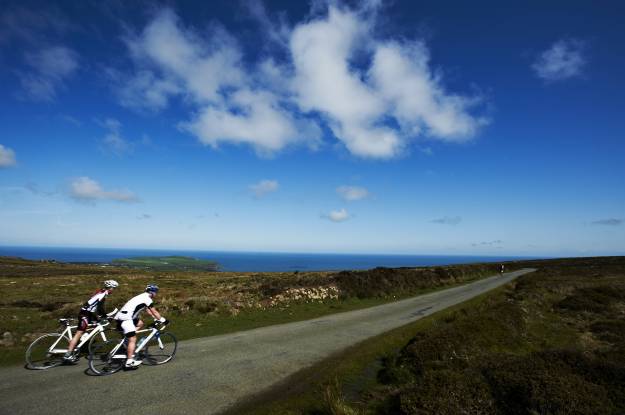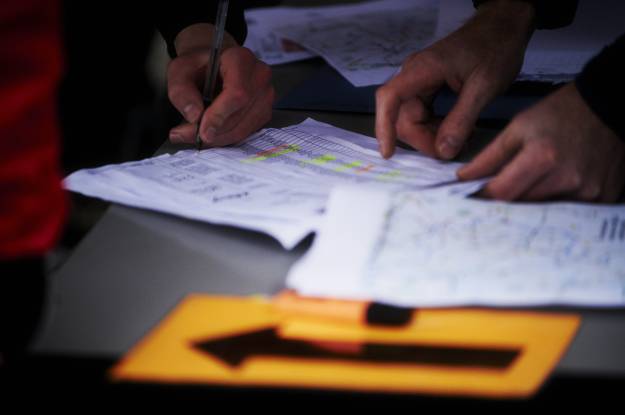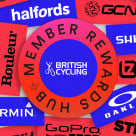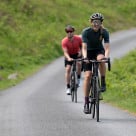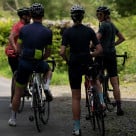On Saturday 6th February 2016 Scottish Cycling and British Cycling hosted a Commissaire Conference at the Emirate Arena in Glasgow. There were assistant, regionally and national commissaires all in attendance, all who work in a range of different disciplines.
After a welcome from Scottish Cycling Chair Kathy Gilchrist and Neil Atkinson, Cycle Sport Education Manager, the Commissaires broke out into different groups to attend three different sessions throughout the morning.
First up was Risk Management with Nigel Cowell-Clark, he covered a range of topics such as:
New Road Race Risk Assessment Forms and Quick Guides
As part of the on-going risk management work there have been new risk assessment forms produced for Road Race events. For each form, there has also been a Quick Guide written to assist their completion. It is a requirement for events to have a risk assessment before the event can be issued a permit. Please see below details about each new form and the process of who completes each section.
Event Risk Assessment Form
All British Cycling registered events require a risk assessment for the race headquarters, and the section between the race headquarters and the race start. This is the responsibility of the event organiser to complete and send to British Cycling before the event.
Race Route Risk Assessment Form
Road races that are run on British Cycling registered routes will already have a Race Route Risk Assessment produced by the British Cycling Risk Assessment Team. This will be passed to the event organiser before the event by the Regional Competition Administrator (RCA).
Dynamic Risk Assessment Form
On the morning of the event, it will be necessary to check the race route. Any differences, or changes, to the published Event and Race Route Risk Assessments need to be recorded on a Dynamic Risk Assessment form. If a Dynamic Risk Assessment form is required, this will need to be completed, agreed and signed by both the Chief Commissaire and the Event Organiser. It is then the responsibility of the Chief Commissaire to send this, with the Commissaire’s report forms, to Scottish Cycling after the event.
You will find the forms below saved on the Event Organiser dashboard. These documents can also be found on the Commissaires web pages; Forms and Guides.
Please use these new forms for your event(s) going forward.
• Event risk assessment form - Road
• Dynamic risk assessment form
There are also Quick Guides to accompany these forms.
• Quick Guide - Event risk assessment - Road
• Quick Guide – Race Route and Dynamic Risk Assessments
If you have any questions or concerns regarding any of the above, please contact events@scottishcycling.org.uk.
UPDATE FOR 2017 Race Season: Race Route Risk Assessment Form
Each registered event road race course will hold its own URN. Road races that are run on these British Cycling registered routes will have a Race Route Risk Assessment produced by the British Cycling Risk Assessment Team. This will be passed to the event organiser before the event by the Regional Competition Administrator (RCA). This risk assessment will determine many things, including marshal positions on the course and the maximum field for the event. This will come into practice for the 2017 race season.
The second session was all about the Commissaire Dashboard with Neil Atkinson.
British Cycling are in the process of developing commissaire specific functions on the membership dashboard. Plans including allowing the completion of commissaire report forms and incident reports for events. The system will also be able to manage the appointment of commissaires to events and allow easy access to event information as well as handy reminders and prompts for post event tasks. Some of this work is still in the early stages of development but some features will be live later this year.
The third morning session was a feedback session with Scottish Cycling’s Events Officers Bob MacFarlane and Sarah Macintyre. The session focused on how to provide feedback to riders, organiser and other commissaires. With lively group discussion some great examples of previous experience were shared amongst the group sessions. The following key points were identified:
- Be specific – to agreed criteria; agree tasks and expectations during briefing
- Be timely – at the end of the event, as part you the debrief
- Prepare your comments – be clear on why you are delivering each point
- Behavior, not the person – describe the effect of their behavior
- Two-way conversation – remember to listen; you have two ears and one mouth!
- Be honest – feedback is best received when it has authority, credibility and trust
- Be positive – give more positive feedback than corrective, follow negative feedback up with a suggested solution or outcome
- Criticise in private – while public recognition is appreciated, public scrutiny is not
The afternoon consisted of some discipline specific workshops, here is what you remembered:
Road
In the road session videos were used to show scenarios of risk and how a commissaire would deal with similar situations. We also all sat a french test of race terms – do you know what bidon meil means?! (Martin Harris)
MTB/CX
We were updated on rule changes and had a chat about technical doping. Our task was to draw an event, I drew a DH start area, and list the commissaires duties next to it - we discussed them all at the end and found out where we had missed things out, if any. Some of it was useful reminder and the rest a great way to improve! (Dominic Scott)
BMX
During the BMX session we went through videos at normal and slow speed to see if we could spot any infringements. We then discussed the appropriate penalty to apply if any. This really helped with keeping up to date with discipline specific technical regulations and building confidence. (Justine Paton)
Track
During the Track session it was good to have an open discussion about when to change the lap board in Bunch races and how we agreed that changing it at a consistent point helped to focus the mind and help eliminate mistakes. We also filled in a mock points sheet and talked over action we could take. (Hugh Sinclair)
Overall, it was a very successful day with some good feedback. Thank you to all who attended, and if you have any questions about the Commissaire Conference please get in touch with ashley.chesham@scottishcycling.org.uk

